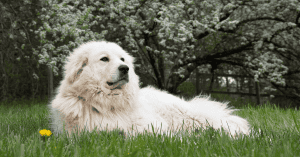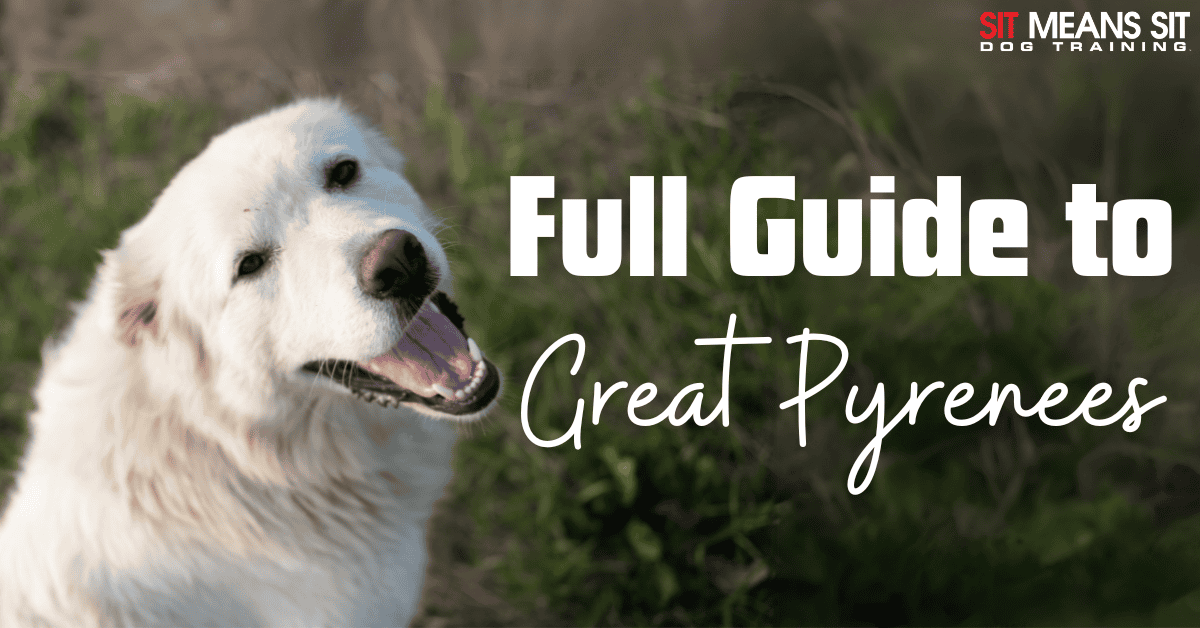Today, we’re diving into the beautiful world of the Great Pyrenees! Known for their majestic appearance and gentle demeanor, these dogs are a true delight for any dog lover. Whether you’re considering adding one to your family or simply curious, here’s everything you need to know about the Great Pyrenees!
History and Origin
The Great Pyrenees, also known as the Pyrenean Mountain Dog, has a rich history that dates back thousands of years. Originating in the Pyrenees Mountains between France and Spain, these dogs were bred to guard livestock. Their impressive size and protective nature made them perfect for warding off predators!
Physical Characteristics
Great Pyrenees are easily recognizable by their thick, white double coats and impressive stature. Here are some key features:
- Size: Males typically weigh between 100-160 pounds, while females weigh between 85-115 pounds.
- Height: Males stand about 27-32 inches tall at the shoulder, with females slightly shorter at 25-29 inches.
- Coat: Their weather-resistant double coat is usually white, though some may have gray, badger, or tan markings.
Temperament
Despite their size, Great Pyrenees are known for their calm and gentle temperament! True to their heritage, the Great Pyrenees are excellent guardians. They are naturally protective of their family and home. These gentle giants are incredibly patient, especially with children, making them excellent family pets! The Great Pyrenees are pretty independent and a bit stubborn. The breed loves to make decisions independently, which is something to remember during training!
Exercise and Training
While the Great Pyrenees are not as energetic as some other breeds, they still need regular exercise to stay healthy and happy! Aim for at least 30 minutes to an hour of exercise daily. This can include walks, playtime in a secure yard, or other activities. Early and consistent training is crucial! Due to their independent nature, training Great Pyrenees requires patience and positive reinforcement. Socialization from a young age will also help them become well-rounded adults.
Grooming
The Great Pyrenees’ beautiful coat requires regular maintenance! Brush your dog at least once a week to prevent mats and tangles. During the shedding season, usually Spring and Fall, more frequent brushing is necessary. Luckily, these fluffy friends do not require frequent baths—every few months or as needed is sufficient. Regularly trim their nails to avoid overgrowth, which can cause discomfort.
Health Considerations
Like all breeds, Great Pyrenees are prone to specific health issues. Regular vet check-ups and a healthy lifestyle can help manage these risks. Common health concerns include hip dysplasia, bloating, and luxating patella. Hip dysplasia is a common issue in large breeds. It is caused by the hip joint not fitting together perfectly and causes pain or discomfort. Bloat is a serious condition affecting deep-chested dogs and requires immediate veterinary attention. Finally, Luxating patella occurs when the kneecap dislocates from its normal position.
Living with a Great Pyrenees
Finally, Great Pyrenees are best suited for homes with ample space. They thrive in rural or suburban settings where they can patrol a large yard. Apartment living can be challenging due to their size and need for space. Great Pyrenees are loyal, loving, and majestic dogs that make wonderful companions for the right family. Their protective nature, combined with their gentle demeanor, makes them a unique and delightful breed. If you’re ready to provide the exercise, grooming, and training they need, a Great Pyrenees can be an incredibly rewarding addition to your home.

Check out these related dog blogs for more breed guides!
Family Favorites: Dog Breeds Perfect for Kids

